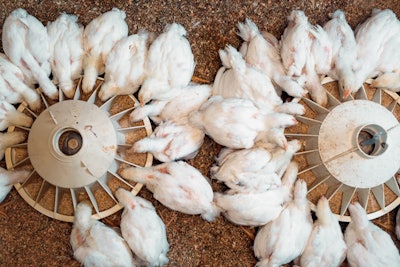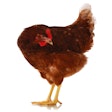
Next generation probiotics developed at the Royal Melbourne Institute of Technology (RMIT) could more effectively and reliably enhance broiler gut health.
“With the withdrawal of antimicrobial growth promoters (AGP), there’s a need for us to have other ways to try and maintain the health and increase the productivity of broilers,” Rob Moore from the RMIT explained during the AgriFutures Chicken Meat Program gut health webinar.
Probiotics are live organisms that, when administered in adequate doses, confer a health benefit to the host. One of the biggest benefits of probiotics for poultry is that they can improve gut health.
However, most poultry probiotics in the market require continuous dosing and/or deliver inconsistent performance, meaning what works for one flock may not work in the next.
“That need for continuous dosing tells us immediately that the probiotic isn’t getting into the gut and staying there and working as a harmonious part of the gut. That’s really one of the main issues that we aimed to address with this project,” added Moore.
A better probiotic?
The project aimed to develop a probiotic able to colonize the gut in the face of variable microbiota. The probiotic also needed to be effective with one or limited dosing.
The first step was to identify and develop bacterial isolates with the special properties required. The researchers isolated, identified and characterized bacteria from broiler flocks. Next, the researchers took the bacterial strains that they could differentiate and used them to reinoculated birds.
Of all the nearly 800 isolates characterized, 50 were ultimately determined to be the most promising for the probiotic. These were then tested for antimicrobial activity in cell culture against both Listeria and C. perfringens, involved in necrotic enteritis.
In the future, Moore plans to conduct additional trials on these isolates to measure impact on gut integrity, the immune system, pathogen exclusion, productivity improvements and flock uniformity.
“Unfortunately, this project was going on right in the middle of COVID, so we were really restricted with the trials we could do,” he said. “We believe if we can find the resources for these tests, we’re going to have some unique new probiotics that will be ready for commercialization and industry use, but we’re not there yet.”



















